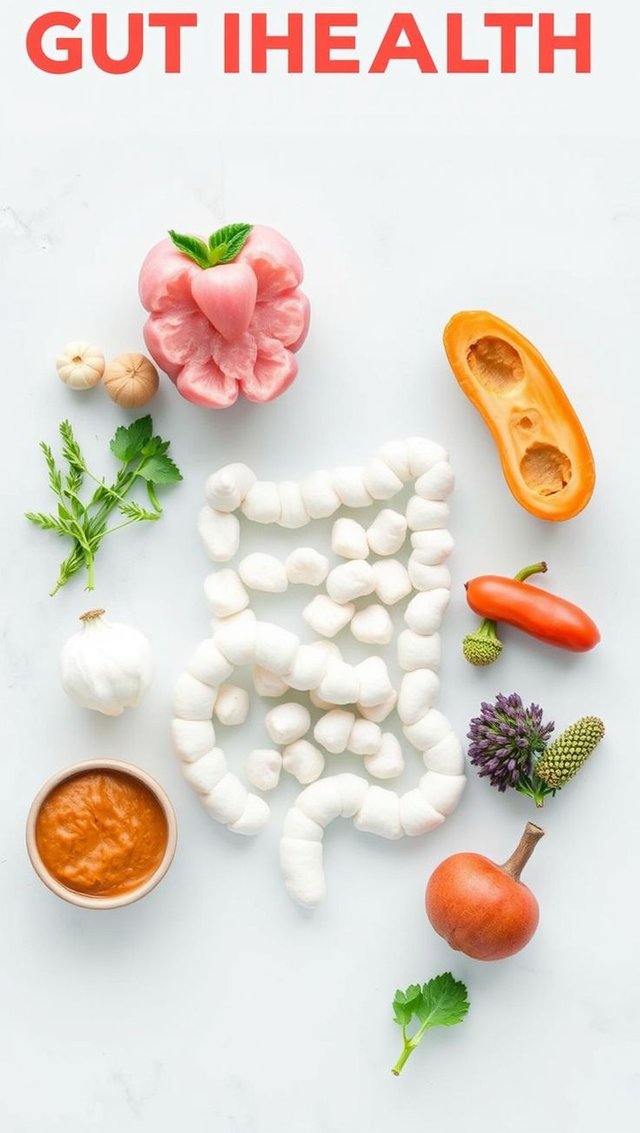Gut Health Explained: Simple Steps for a Healthier You

When you think of your health, the first things that might come to mind are exercise, nutrition, and sleep. But have you considered your gut? Your gut, often referred to as the "second brain," is much more than a digestive system. It's the cornerstone of your overall well-being. From digestion to mental health and immune function, the state of your gut impacts nearly every aspect of your health.
What Is Gut Health and Why Does It Matter?
Gut health refers to the balance of microorganisms (bacteria, fungi, viruses, etc.) that live in your digestive tract. This complex ecosystem, known as the gut microbiome, plays a critical role in digestion, immune system function, metabolism, and even mental health.
Recent research shows that an unhealthy gut microbiome can lead to a variety of issues, including digestive disorders, fatigue, inflammation, and even mood imbalances. An imbalance in gut bacteria has been linked to conditions like IBS (Irritable Bowel Syndrome), allergies, and autoimmune diseases.
Signs of Poor Gut Health

How do you know if your gut health is out of balance? Here are a few signs that your digestive system may need some attention:
Bloating, gas, or indigestion
Unexplained weight gain or loss
Fatigue or trouble sleeping
Skin issues like acne or eczema
Autoimmune reactions or food intolerances
How to Boost Your Gut Health
Good gut health begins with the foods you eat and the lifestyle choices you make. Here are some simple, effective ways to support a healthy gut:
- Eat a Fiber-Rich Diet
Fiber acts as food for the beneficial bacteria in your gut. Incorporate plenty of fruits, vegetables, legumes, and whole grains to nourish your microbiome.
2.Include Probiotics and Prebiotics
Probiotics are beneficial bacteria found in fermented foods like yogurt, kefir, sauerkraut, and kombucha. Prebiotics, on the other hand, are found in foods like garlic, onions, bananas, and asparagus, and they help feed the good bacteria in your gut.
Stay Hydrated
Drinking enough water is essential for digestion and nutrient absorption. Hydration helps your gut function properly and supports the balance of healthy gut bacteria.Manage Stress
Chronic stress can disrupt the balance of your gut microbiome, leading to digestive issues and other health problems. Find stress-relief techniques that work for you, such as yoga, meditation, or deep breathing exercises.
Avoid Unnecessary Antibiotics
Antibiotics can wipe out both good and bad bacteria in your gut. Only use antibiotics when absolutely necessary and always follow your doctor's guidance.
The Gut-Brain Connection
The gut is often called the "second brain" because it is so closely linked to brain function. Did you know that nearly 95% of serotonin, the hormone responsible for mood regulation, is produced in your gut? That's why an unhealthy gut can negatively affect your mental health, leading to conditions like anxiety and depression.
Research also suggests that improving gut health can lead to a happier mood and better stress resilience. In fact, a balanced microbiome is essential for optimal brain function.
The Bottom Line
Your gut is central to your health, and nurturing it is key to feeling your best. By eating the right foods, managing stress, and taking steps to improve your gut health, you can unlock a wealth of benefits that go beyond digestion. Start caring for your gut today, and it will pay off with better immunity, improved energy, and a happier mind.
Conclusion
Your gut is a complex, powerful organ that influences almost every part of your health. By supporting it with a healthy diet, lifestyle choices, and stress management, you can unlock the full potential of your well-being. Start making small changes today, and watch your gut—and your overall health—thrive.
https://amzn.in/d/7ZwNTdM